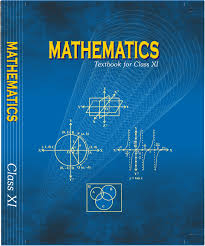Class 11 - Mathematics
Complex Numbers - Exercise 5.2

Top Block 1
Question 1:
Find the modulus and the argument of the complex number z = -1 – √3
Answer:
Given, z = -1 – √3
Let r cos θ = -1 and r sin θ = -√3
On squaring and adding, we obtain
(r cos θ)2 + (r sin θ)2 = (-1)2 + (-√3)2
⇒ (r2 cos2 θ + r2 sin2 θ) = 1 + 3
⇒ r2 (cos2 θ + sin2 θ) = 4
⇒ r2 = 4 [Since cos2 θ + sin2 θ = 1]
⇒ r = 2 [Since r > 0]
So, Modulus = 2
Now, 2cos θ = -1 and 2sin θ = -√3
⇒ cos θ = -1/2 and sin θ = -√3/2
Since both the values of sin θ and cos θ are negative and sin θ and cos θ are negative in III
quadrant,
So, argument θ = -(π – π/3) = -2π/3
Thus, the modulus and argument of the complex number -1 – √3 are 2 and -2π/3 respectively.
Question 2:
Find the modulus and the argument of the complex number z = -√3 + i
Answer:
Given, z = -√3 + i
Let r cos θ = -√3 and r sin θ = 1
On squaring and adding, we obtain
(r cos θ)2 + (r sin θ)2 = (-√3)2 + 12
⇒ (r2 cos2 θ + r2 sin2 θ) = 3 + 1
⇒ r2 (cos2 θ + sin2 θ) = 4
⇒ r2 = 4 [Since cos2 θ + sin2 θ = 1]
⇒ r = 2 [Since r > 0]
So, Modulus = 2
Now, 2cos θ = -√3 and 2sin θ = 1
⇒ cos θ = -√3/2 and sin θ = 1/2
Since sin θ is positive and cos θ is negative.
So, sin θ and cos θ are in II quadrant.
Now, argument θ = π – π/6 = 5π/6
Thus, the modulus and argument of the complex number -√3 + i are 2 and 5π/6 respectively.
Question 3:
Convert the given complex number in polar form: 1 – 1
Answer:
Given, z = 1 – i
Let r cos θ = 1 and r sin θ = -1
On squaring and adding, we obtain
(r cos θ)2 + (r sin θ)2 = 12 + (-1)2
⇒ (r2 cos2 θ + r2 sin2 θ) = 1 + 1
⇒ r2 (cos2 θ + sin2 θ) = 2
⇒ r2 = 2 [Since cos2 θ + sin2 θ = 1]
⇒ r = √2 [Since r > 0]
So, Modulus = √2
Now, √2cos θ = 1 and √2sin θ = -1
⇒ cos θ = 1/√2 and sin θ = -1/√2
Since sin θ is negative and cos θ is positive.
So, sin θ and cos θ are in IV quadrant.
Now, argument θ = -π/4
Now, 1 – i = r cos θ + i * r sin θ
= √2{cos (-π/4) + i sin (-π/4)}
= √2(cos π/4 – i sin π/4)
This is the required polar form.
Question 4:
Convert the given complex number in polar form: -1 + i
Answer:
Given, z = -1 + i
Let r cos θ = -1 and r sin θ = 1
On squaring and adding, we obtain
(r cos θ)2 + (r sin θ)2 = (-1)2 + 12
⇒ (r2 cos2 θ + r2 sin2 θ) = 1 + 1
⇒ r2 (cos2 θ + sin2 θ) = 2
⇒ r2 = 2 [Since cos2 θ + sin2 θ = 1]
⇒ r = √2 [Since r > 0]
So, Modulus = √2
Now, √2cos θ = -1 and √2sin θ = 1
⇒ cos θ = -1/√2 and sin θ = 1/√2
Since sin θ is positive and cos θ is negative.
So, sin θ and cos θ are in II quadrant.
Now, argument θ = π – π/4 = 3 π/4
Now, -1 + i = r cos θ + i * r sin θ
= √2{cos (3π/4) + i sin (3π/4)}
= √2(cos 3π/4 + i sin 3π/4)
This is the required polar form.
Mddle block 1
Question 5:
Convert the given complex number in polar form: -1 – i
Answer:
Given, z = -1 – i
Let r cos θ = -1 and r sin θ = -1
On squaring and adding, we obtain
(r cos θ)2 + (r sin θ)2 = (-1)2 + (-1)2
⇒ (r2 cos2 θ + r2 sin2 θ) = 1 + 1
⇒ r2 (cos2 θ + sin2 θ) = 2
⇒ r2 = 2 [Since cos2 θ + sin2 θ = 1]
⇒ r = √2 [Since r > 0]
So, Modulus = √2
Now, √2cos θ = -1 and √2sin θ = -1
⇒ cos θ = -1/√2 and sin θ = -1/√2
Since both sin θ and cos θ are negative.
So, sin θ and cos θ are in III quadrant.
Now, argument θ = -(π – π/4) = -3π/4
Now, -1 – i = r cos θ + i * r sin θ
= √2{cos (-3π/4) + i sin (-3π/4)}
= √2(cos 3π/4 – i sin 3π/4)
This is the required polar form.
Question 6:
Convert the given complex number in polar form: -3
Answer:
Given, z = -3
Let r cos θ = -3 and r sin θ = 0
On squaring and adding, we obtain
(r cos θ)2 + (r sin θ)2 = 32 + 02
⇒ (r2 cos2 θ + r2 sin2 θ) = 9
⇒ r2 (cos2 θ + sin2 θ) = 9
⇒ r2 = 9 [Since cos2 θ + sin2 θ = 1]
⇒ r = 3 [Since r > 0]
So, Modulus = 3
Now, 3cos θ = -3 and 3sin θ = 0
⇒ cos θ = -1 and sin θ = 0
Now, argument θ = π
Now, -3 = r cos θ + i * r sin θ
= √2(cos π + i sin π)
This is the required polar form.
Question 7:
Convert the given complex number in polar form: √3 + i
Answer:
Given, z = √3 + i
Let r cos θ = √3 and r sin θ = 1
On squaring and adding, we obtain
(r cos θ)2 + (r sin θ)2 = (√3)2 + (1)2
⇒ (r2 cos2 θ + r2 sin2 θ) = 3 + 1
⇒ r2 (cos2 θ + sin2 θ) = 4
⇒ r2 = 4 [Since cos2 θ + sin2 θ = 1]
⇒ r = 2 [Since r > 0]
So, Modulus = 2
Now, 2cos θ = √3 and 2sin θ = 1
⇒ cos θ = √3/2 and sin θ = 1/2
Since both sin θ and cos θ are positive.
So, sin θ and cos θ are in I quadrant.
Now, argument θ = π/6
Now, √3 + i = r cos θ + i * r sin θ
= 2{cos (-3π/4) + i sin (-3π/4)}
= 2(cos π/6 + i sin π/6)
This is the required polar form.
Question 8:
Convert the given complex number in polar form: i
Answer:
Given, z = i
Let r cos θ = 0 and r sin θ = 1
On squaring and adding, we obtain
(r cos θ)2 + (r sin θ)2 = 02 + 12
⇒ (r2 cos2 θ + r2 sin2 θ) = 1
⇒ r2 (cos2 θ + sin2 θ) = 1
⇒ r2 = 1 [Since cos2 θ + sin2 θ = 1]
⇒ r = 1 [Since r > 0]
So, Modulus = 1
Now, cos θ = 0 and sin θ = 1
Now, argument θ = π/2
Now, -3 = r cos θ + i * r sin θ
= cos π/2 + i sin π/2
This is the required polar form.
Bottom Block 3
Click here to visit Official CBSE website
Click here for NCERT solutions
Click here to visit Official Website of NCERT
Click here to download NCERT Textbooks
